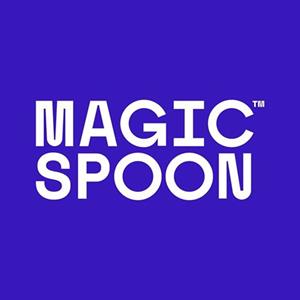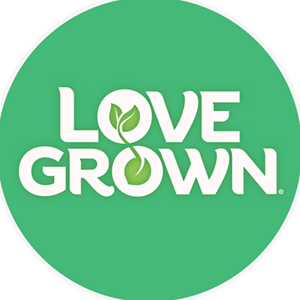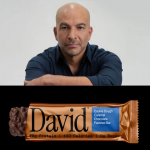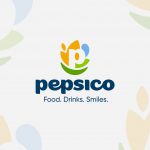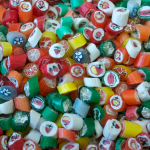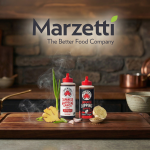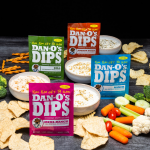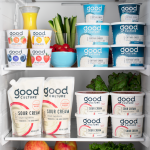Expo West: Love Grown And Magic Spoon Innovate With Shifting Consumer Habits In Mind
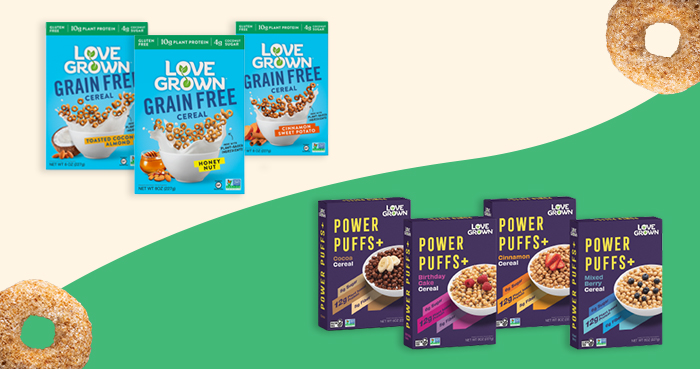
Food makers are reimagining the classic cereal bowl to bring higher protein and lower sugar levels to an aisle that has often overlooked its resident products’ nutritional value. This year’s Expo West saw two brands – Love Grown and Magic Spoon – aiming to capitalize on consumer interests while taking an omnichannel approach to draw in new consumers. Here is how one established and one emerging brand are each approaching the category.
Love Grown Goes “Back To Its Roots” With New Cereal Launches
Better-for-you breakfast brand Love Grown announced it was expanding its cereal offerings at this year’s Natural Products Expo West. The brand has a renewed focus on developing high-protein, high-fiber and low-sugar offerings, and aims to create a range of nutritionally-balanced breakfast products, a spokesperson for the company said.
Love Grown, which is best known for using beans as its cereal’s main ingredient, is moving beyond the legume, launching a new grain-free cereal available in Honey Nut, Cinnamon Sweet Potato and Toasted Coconut Almond flavors. It’s also releasing a new low-sugar line, Power Puffs+, in Birthday Cake, Cinnamon, Mixed Berry and Cocoa.
Both lines are made with pea protein as the first ingredient, and the grain-free line also features cassava and almond flour, among additional nut-based flours. While the new products mark the brand’s evolution beyond bean-based cereals, the company said it still sees value in its flagship products. A spokesperson for the brand emphasized Love Grown’s formulation of navy beans, lentils, garbanzo beans and brown rice flour cereals differentiates it on the shelf; Love Grown claims no other cereal company has attempted bean-based products.
Love Grown’s core line also is part of the company’s shift towards lower-sugar offerings in the new grain-free line includes alternative sweeteners like chicory root, coconut sugar and honey; meanwhile Power Puffs+ boasts 6 grams or less of sugar.
To further amplify this new focus as one of its core attributes, Love Grown is looking back on its existing lines by reformulating its entire range with monk fruit extract to sub out a portion of cane sugar. The company said while this move has been driven by the brand’s attention to consumer demand for lower-sugar cereal, especially among kid-focused offerings, it noted that the reformulations contribute to its ultimate goal: being recognized as a functional, simple-ingredient, high-protein and low-sugar breakfast brand beyond the cereal and granola aisles.
Love Grown previously sold a range of gluten-free oatmeal cups but has since discontinued the line as it broadens its focus away from gluten-free and bean-based products and toward “better-for-you breakfast.” The company said the oatmeal cups did not fit well within its core set and it will remain focused on granolas and cereals for the time being.
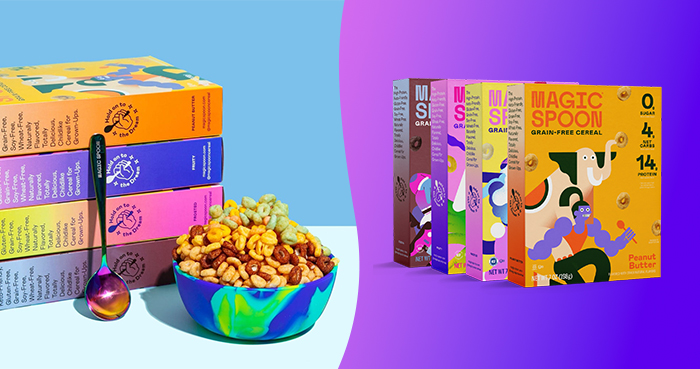
Magic Spoon Makes Moves Into Retail
Cereal and snack brand Magic Spoon, meanwhile, is readying itself to make the jump from direct-to-consumer sales to store shelves. The online brand’s expanded team was at Expo West with an eye on entering brick and mortar retail later this year.
Co-founder Gabi Lewis said the tradeshow was the first the brand had attended, with a goal of starting to deepen relationships in the industry.
“Expo West is above all about catching up with our friends and supporters in the industry, ranging from service providers to fellow founders,” he said. “We will also be expanding to retail later this year, and so it was exciting to meet with some of our future partners too.”
Currently Magic Spoon is sold entirely online, primarily through the company’s own website. Launched in 2019 with a line of four low-carb, zero sugar, high protein cereals available in Fruity, Cinnamon, Cocoa, and Frosted options, the brand has since expanded to eight SKUs, with additional limited edition launches throughout the year. Beyond its core 7 oz. boxes, the company has also experimented with single-serve boxes, on-the-go cereal cups and, most recently, cereal bars.
Though it might appear that some of the brand’s products are already sold in retailers such as Walmart.com, the listings are from resellers who are purchasing the products and then listing them with a large markup, Lewis said.
The brand team hasn’t yet settled on the exact flavors and product types that will lead its charge into physical retail. Lewis declined to comment on what pricing would look like. With multi-serve boxes currently sold online in 4-packs for $40, it’s clear that $10 a box would be far higher than many conventional brands in the cereal set.
“Data points like the number of existing customers who purchase, or the percentage of new website visitors who click on a limited flavor rather than a hero product, or qualitative flavor feedback received via surveys, all inform our ongoing digital strategy for a given limited flavor, but will also eventually inform our offline strategy with that given flavor,” Lewis said.
To support this move Magic Spoon has also brought on Rachelle Lynch as its head of sales. Lynch — who has served as chief sales officer for Mason Dixie, VP of sales for Hu Product, and Chief Sales Officer for Jeni’s — will join the company next week, Lewis said, and focus much of her energies into helping the brand land new accounts.

